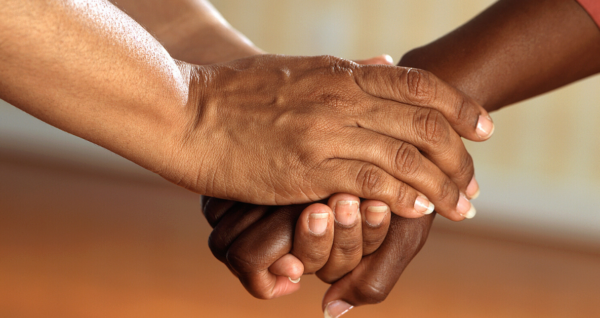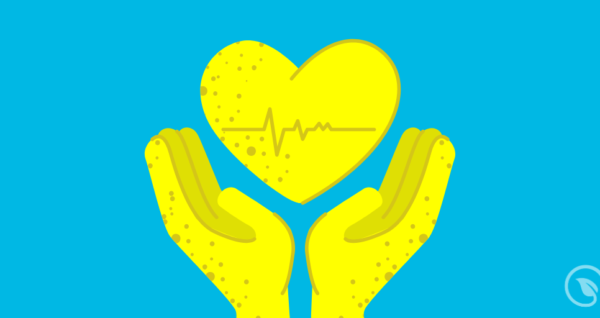The following Safety Planning Guide was created by members of Sanctuary’s Survivor Leadership Institute and has been reviewed by multiple clinicians. The guide draws from survivors’ and clinicians’ expertise, as well as from safety planning models from the National Domestic Violence Hotline, Sanctuary for Families, and Love is Respect.
English | Español | Français | Deutsch | العربية | 中文 | 한국어
Der folgende Leitfaden zur Sicherheitsplanung wurde von Mitgliedern des Survivor Leadership Institute von Sanctuary erstellt und von mehreren Klinikern geprüft. Der Leitfaden stützt sich auf das Fachwissen von Überlebenden und Klinikern sowie auf Sicherheitsplanungsmodelle der nationalen Hotline für häusliche Gewalt, des Sanctuary for Families und von Love is Respect.
WAS IST EIN SICHERHEITSPLAN?
Ein Sicherheitsplan ist eine Reihe von Maßnahmen, die Sie ergreifen können, um das Risiko von Schäden in unsicheren Situationen mit einem Täter oder einem Familienmitglied zu verringern. Angesichts der Veränderungen in unserer Umgebung durch das Coronavirus raten wir Überlebenden von geschlechtsspezifischer Gewalt, die folgenden Sicherheitstipps zu beachten, die von Überlebenden erstellt wurden. Das Team der Survivor Leaders von Sanctuary for Families hat diese Liste in der Hoffnung zusammengestellt, dass es in dieser Zeit digitale Werkzeuge für die Sicherheit zur Verfügung stellen kann.
WARUM SOLLTE ICH EINEN SICHERHEITSPLAN ERSTELLEN?
Es kann schwierig sein, in einer Zeit des Notfalls oder hohen Stresses zu denken und zu reagieren, insbesondere bei dem zusätzlichen Stress und der Unsicherheit des Coronavirus, daher ist es hilfreich, einen Plan im Voraus zu erstellen. Es ist auch wichtig, den Sicherheitsplan häufig zu aktualisieren, da sich die Umstände ändern können. Täter versuchen oft, Macht und Kontrolle über das Leben eines Überlebenden zu haben, und ein Sicherheitsplan ist eine Möglichkeit, wie ein Überlebender Macht und Kontrolle über seine eigene Situation haben kann, so weit es ihm möglich ist. Ein Plan kann Sie in die Lage versetzen, die für Ihre Situation sichersten Entscheidungen zu treffen.
SIE SIND DER EXPERTE
Sie kennen Ihre Situation besser als jeder andere, also passen Sie Ihren Sicherheitsplan bitte an das an, was sich für Sie am sichersten anfühlt. Wenn sich etwas nicht sicher fühlt, vertrauen Sie Ihren Instinkten. Es mag zum Beispiel nicht sicher sein, einen Sicherheitsplan schriftlich abzuschließen, aber Sie können ihn trotzdem in Ihrem Kopf noch einmal durchgehen und ihn so gut wie möglich auswendig lernen. Es kann auch hilfreich sein, Ihren Sicherheitsplan mit einem Freund oder Verwandten Ihres Vertrauens durchzugehen.
DIGITALE SICHERHEIT
Versuchen Sie bitte, einen sicheren Computer oder ein sichereres Telefon zu verwenden, auf den bzw. auf das eine missbrauchende Person keinen direkten oder entfernten (Hacker-)Zugang hat. Digitales Stalking ist eine Möglichkeit für Missbraucher, Macht und Kontrolle auszuüben. E-Mail und Instant-/Textnachrichten (IM) sind keine sicheren oder vertraulichen Wege, um mit jemandem über die Gefahr oder den Missbrauch in Ihrem Leben zu sprechen. Wenn möglich, rufen Sie bitte stattdessen an. Wenn Sie E-Mail oder Textnachrichten verwenden, benutzen Sie bitte einen sicheren Computer oder ein sichereres Telefon und ein Konto, von dem Ihr Missbraucher nichts weiß.
Für weitere Informationen über Computer, das Internet und digitale Sicherheit klicken Sie bitte hier.
ERHÖHTES SCHADENSRISIKO DURCH COVID-19
Da viele von uns soziale Distanzierung und Quarantäne praktizieren, gibt es viele zusätzliche Risiken für Überlebende und ihre Sicherheit, wie zum Beispiel:
- Isolation: Die Täter können diese Zeit nutzen, um die Überlebenden weiter von ihren Geliebten zu isolieren. Sie können diese Zeit auch dazu nutzen, die Bewegungsfreiheit eines Überlebenden persönlich weiter einzuschränken und zu kontrollieren, wohin sie gehen und wann. Sie können auch die Online-Interaktionen eines Überlebenden kontrollieren und so seinen Zugang zur Außenwelt einschränken.
- Den Zugang zu Informationen einschränken: Missbraucher können auch den Zugang zu Nachrichten und anderen Medien einschränken und sich selbst zur Quelle aller Informationen machen.
- Erhöhter Missbrauch: Der Missbrauch kann sich während dieser Zeit verschlimmern, da die Überlebenden möglicherweise mehr Zeit mit ihren Missbrauchern verbringen. Überlebende können während dieser Zeit auch neue oder andere Arten von Missbrauch erleben.
- Persönliches und digitales Stalking: Missbraucher könnten versuchen, ihre Macht auszuüben, indem sie versuchen, Überlebende persönlich und digital zu überwachen, zu kontrollieren und zu stalken.
- Finanzieller Missbrauch: Viele Menschen sind durch ihre Arbeitsunfähigkeit finanziell belastet, und Missbraucher können in dieser Zeit Überlebende weiter finanziell ausbeuten.
- Erziehung: Überlebende, die ihre Kinder gemeinsam mit ihren Missbrauchern erziehen, können in dieser Zeit mit einzigartigen Herausforderungen konfrontiert sein, wie z.B. Besuchsbarrieren und/oder erhöhte Exposition gegenüber dem Missbraucher aufgrund fehlender zugänglicher Kinderbetreuung. Damit ein Überlebender arbeiten kann, muss er/sie z.B. seinen/ihren Missbraucher für die Kinderbetreuung ausnutzen.
SICHERHEITSTIPPS VON ÜBERLEBENDEN
1. Buddy-System-Codewort
Identifizieren Sie mindestens zwei Personen, an die Sie sich mit einem “Codewort” wenden können, um sie zu informieren, wenn Sie in Schwierigkeiten sind. Planen Sie im Voraus, was sie tun sollen, wenn Sie ihnen das Codewort schicken.
2. “Sicherster Raum”
Wenn es einen Streit gibt, bestimmen Sie einen Bereich des Hauses, in den Sie umziehen können, in dem es keine Waffen gibt und in dem es Möglichkeiten gibt, das Haus, die Wohnung oder das Gebäude zu verlassen, wie z.B. eine Tür oder ein Fenster, um das Haus/die Wohnung zu verlassen. Für einige Überlebende, insbesondere für diejenigen, die zu Hause mit einem Missbraucher während des Coronavirus unter Quarantäne gestellt wurden, mag sich kein Raum sicher fühlen, deshalb nennen wir ihn die “sichersten Räume”. Wenn Sie zumindest die Bereiche mit dem geringsten Risiko identifizieren können, können Sie vielleicht den Schaden reduzieren.
3. Mit Kindern planen
- Codewörter: Wenn Sie Kinder haben, entscheiden Sie, wie Sie die Dringlichkeit kommunizieren wollen. Wenn zum Beispiel die Tochter einer Überlebenden klein war, öffnete die Überlebende ihre Arme und die Tochter wusste, dass dies bedeutete, zu ihr zu laufen, um sich in Sicherheit zu bringen. Einige Überlebende erstellen auch ein “Codewort” mit ihren Kindern, das bedeutet, dass sie in den “sichersten Raum” des Hauses gehen sollen, für den Sie sich bereits entschieden haben.
- Notfallnummern: Wenn Sie aus irgendeinem Grund nicht in der Lage sind, Notrufe zu machen, und Sie Kinder haben, geben Sie ihnen die Sicherheitsnummer(n), wenn sie alt genug sind. Einige Notrufnummern finden Sie im Abschnitt “Ressourcen”, der unten aufgeführt ist.
4. Verständigung der Polizei vor einem Notfall
Im Vorfeld können Sie Ihre Bedenken bei Ihrer örtlichen Polizeidienststelle anmelden. Lassen Sie sie die Geschichte und Ihre Sorge über die Isolation aufgrund des Coronavirus wissen. Es kann nützlich sein, mit dem Beamten für häusliche Gewalt zu sprechen.
5. Ausstiegsplan
Falls Sie fliehen müssen, erstellen Sie im Voraus einen Ausstiegsplan mit jemandem, der diese Notwendigkeit unterstützen könnte. Gibt es einen vertrauenswürdigen Freund/Verwandten, bei dem Sie bei Bedarf bleiben können?
6. Vorräte, Lebensmittel und Medikamente
Überprüfen Sie Ihre Vorräte und Lebensmittel. Wenn Sie Lebensmittel benötigen und kein Geld haben, überprüfen Sie Ihre örtliche Speisekammer, den Tempel/Kirche/Moschee/usw. oder andere Gemeindeorganisationen. Denken Sie daran, Ihre Medikamente im Notfall an einem sicheren, leicht zugänglichen Ort aufzubewahren.
7. Notfalltasche
Packen Sie eine Notfalltasche mit einem zusätzlichen Satz Schlüssel, Kleidung für Sie und Ihre Kinder, ein Prepaid-Handy, Medikamente, Kopien von wichtigen Dokumenten usw.
8. Wichtige Dokumente
Machen Sie Kopien oder Fotos von Ihren wichtigen Dokumenten für sich selbst und schicken Sie sie an einen vertrauenswürdigen Freund oder Verwandten. Wichtige Dokumente können Ausweise, Sozialversicherungskarten, Einwanderungsdokumente, Geburtsurkunden, Informationen zur Krankenversicherung und Schutzanordnungen sein. Wie bereits erwähnt, sollten Sie darauf achten, dass Sie alles per Telefon oder Computer schicken. Bitte verwenden Sie die für Sie sicherste Methode.
9. Soziale Unterstützung suchen
Durch die soziale Distanzierung und Quarantäne können sich Überlebende noch mehr isoliert fühlen, und Missbraucher können eine weitere Isolation als Macht- und Kontrolltaktik einsetzen. Identifizieren Sie vertrauenswürdige Freunde, Verwandte oder sogar Online-Unterstützungsgruppen, bei denen Sie noch virtuell eine Verbindung herstellen können. Wenn Sie einen Freund oder eine Freundin haben, der/die möglicherweise missbraucht wird, sollten Sie in dieser Zeit noch mehr auf ihn/sie zugehen.
10. Einen “friedlichen Raum” erschaffen
Viele Überlebende fühlen sich gezwungen, während des Coronavirus-Ausbruchs mehr Zeit mit einem Missbraucher zu verbringen, weil sie sich beim Verlassen des Hauses und beim Aufenthalt in der Wohnung unsicher fühlen könnten. Wenn Sie Ihr Haus nicht verlassen können, versuchen Sie, sich einen “friedlichen Raum” in Ihrem Haus zu schaffen (wenn das für Sie sicher ist). Sie können Bilder eines friedlicheren Ortes zeichnen und an eine Wand hängen, um sich eine emotionale Pause zu gönnen und sich einen friedlicheren Ort vorzustellen. Dies ist auch eine Aktivität, die Sie mit Ihren Kindern machen können. Sie können auch positive Affirmationen aufschreiben und an die Wand hängen, um sich an Ihren Wert zu erinnern.
11. An ihrem Plan festhalten
Überlegen Sie sich, ob Sie eine Liste Ihres Sicherheitsplans in Ihrem Telefon oder an einem anderen für Sie sicheren Ort aufbewahren sollten. Bitte überlegen Sie, was für Sie am sichersten ist. Wenn Sie sich dafür entscheiden, Ihren Plan irgendwo aufzuschreiben, überlegen Sie sich, nur Schlüsselwörter aufzulisten, die Ihnen helfen, sich an den Plan zu erinnern, aber das wäre Ihrem Missbraucher nicht klar. Wenn dies nicht sicher ist, versuchen Sie, sich Ihren Plan einzuprägen, und konzentrieren Sie sich darauf, sich mindestens eine wichtige Notfallnummer auf Ihrer Liste der Ressourcen einzuprägen.
RESSOURCEN
Alle folgenden Ressourcen sind trotz des Coronavirus-Ausbruchs zugänglich.
- 9-1-1: In einem Notfall rufen Sie bitte jederzeit 911 an.
- Notfall-SOS auf dem iPhone: Hier ist ein Link zu einer Verknüpfung zur Verwendung von Emergency SOS, um schnell und einfach Hilfe zu rufen und Ihre Notfallkontakte zu alarmieren, wenn Sie ein iPhone besitzen: Wie Sie Emergency SOS auf Ihrem iPhone verwenden.
- Gemeinsame Nutzung von Notfall-Standorten auf Androids und iPhones: Hier finden Sie einen Link, wie Sie die Standortfreigabe für Notfälle auf Ihrem Telefon einrichten können, falls Sie Ihren Standort im Notfall einem Freund oder Verwandten Ihres Vertrauens mitteilen möchten: Wie Sie die Notfall-Standortfreigabe verwenden können.
- Hotline für Familien: Die Hotline des Sanctuary for Families’ ist von Montag bis Freitag von 9.00 bis 17.00 Uhr weiterhin erreichbar. Bitte rufen Sie uns an unter 212-349-6009.
- National hotline for domestic violence: The national hotline for domestic violence is still available around the clock. Please call 1-800-799-7233.
- National hotline for human trafficking: The national hotline for human trafficking can still be reached around the clock. Please call 1-888-373-7888 or send an SMS to 233-733.
- Suicide hotline: The national suicide prevention lifeline is still available around the clock. Please call 1-800-273-8255.
—
By: Monica Harris, Survivor Leader & Shobana Powell, LCSW, Director of Survivor Leadership Institute.
Reviewed by: Flore Baptiste, Carmen Guzman Lombert, Survivor Leader, Cristian Eduardo, Survivor Leader, and Hazell Imbert, LMHC, Counselor in Residential Services.

